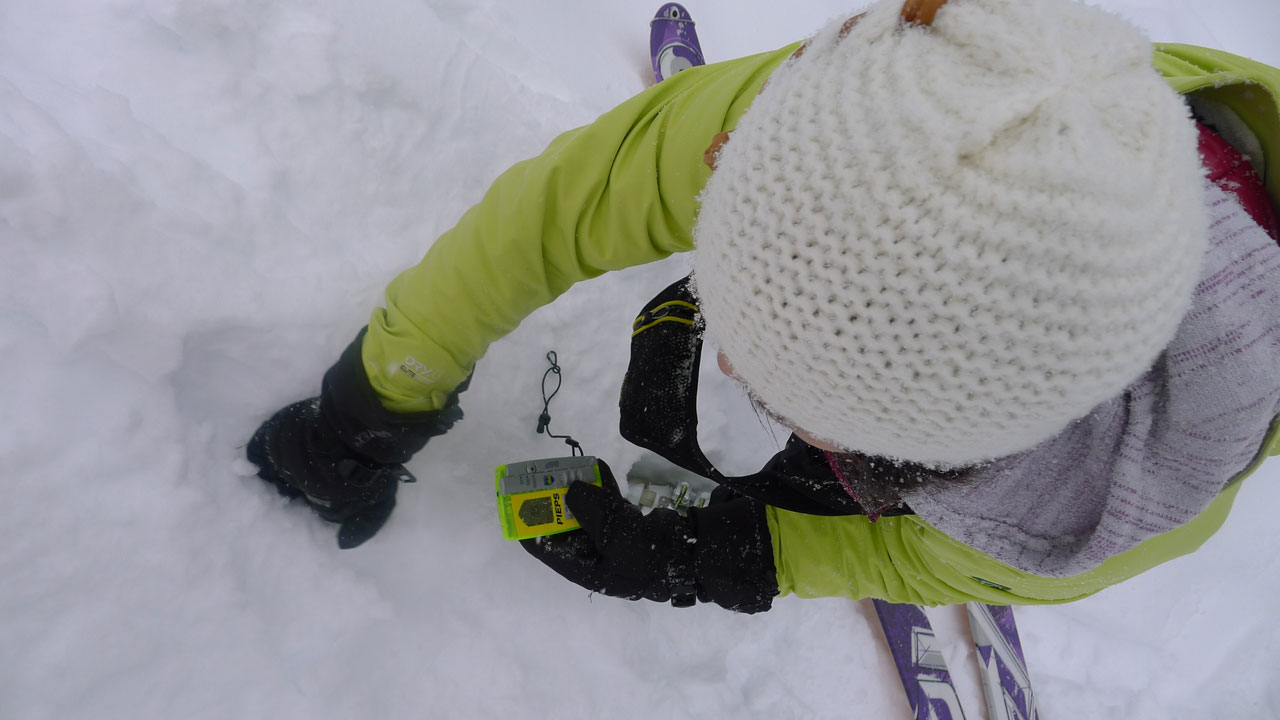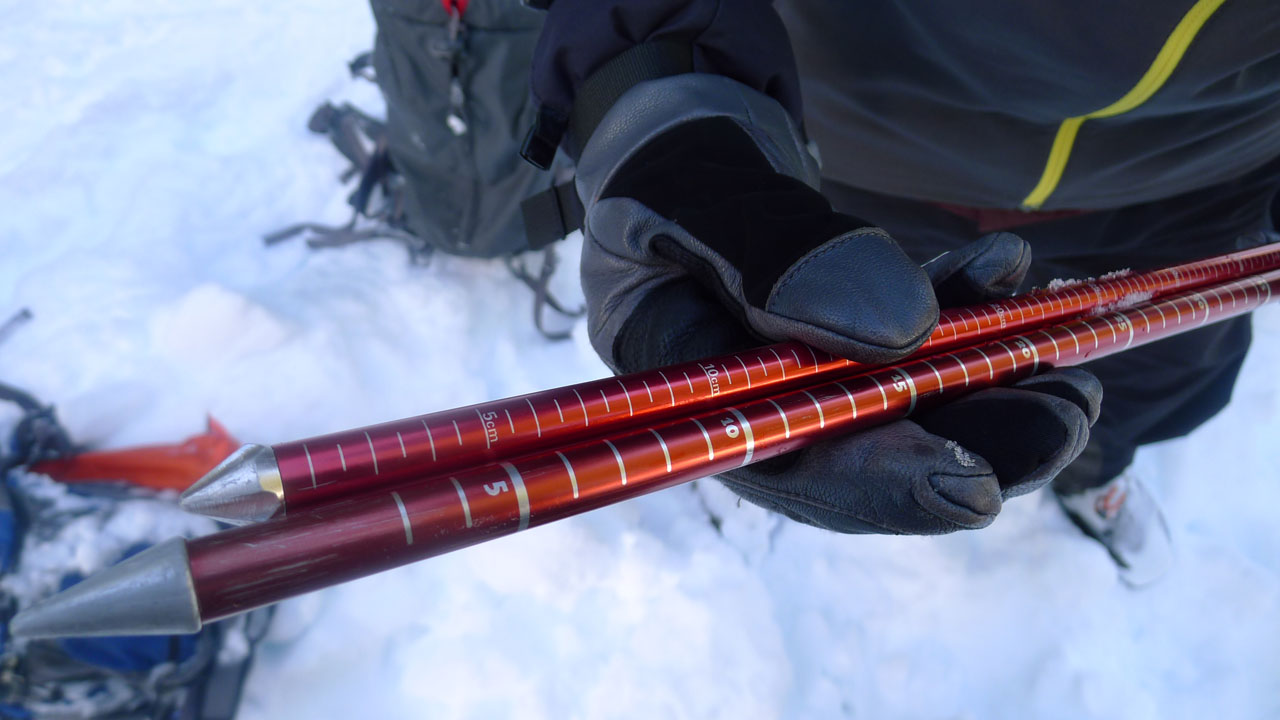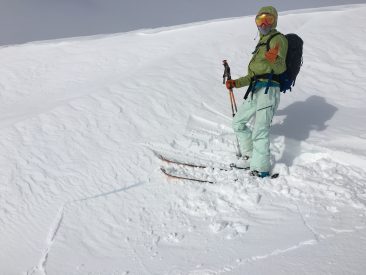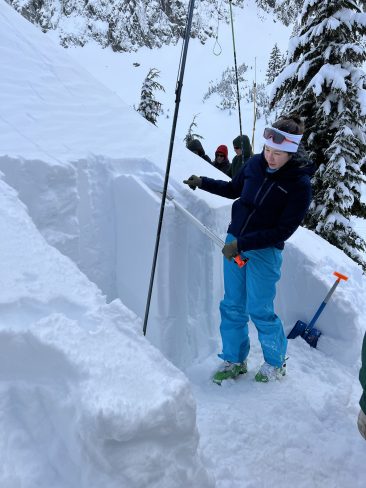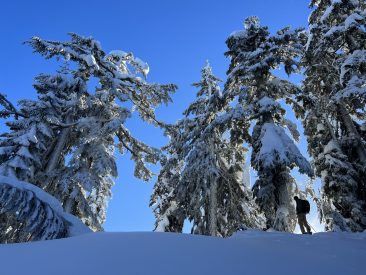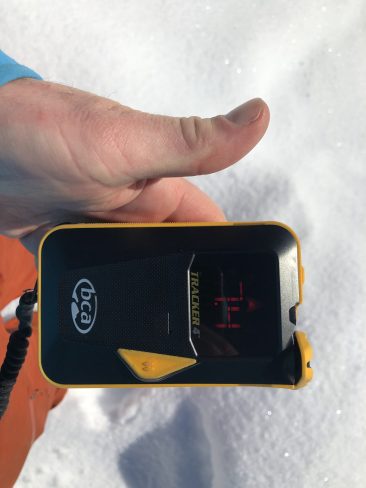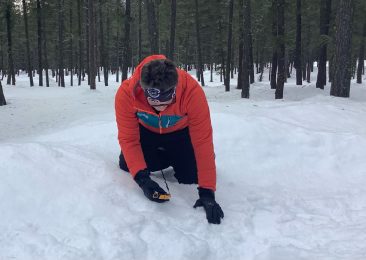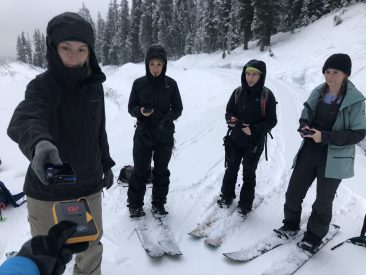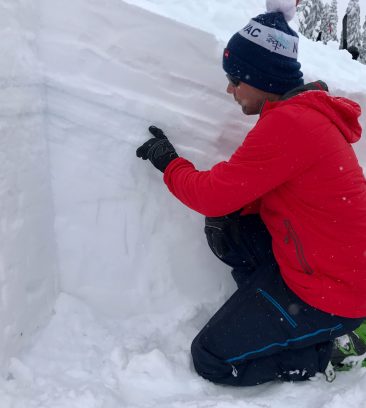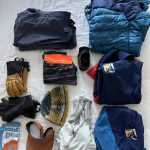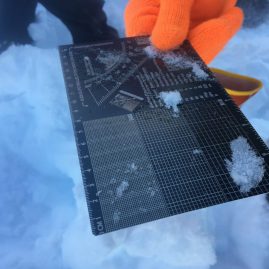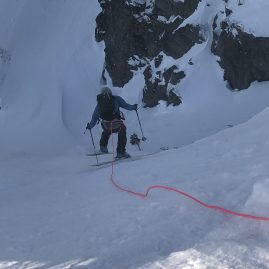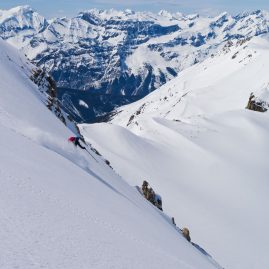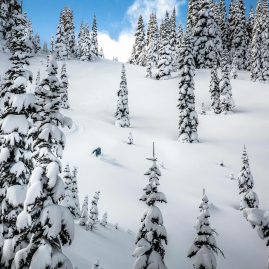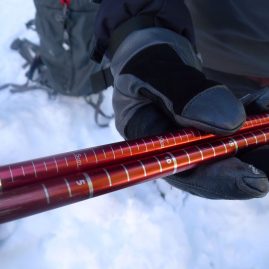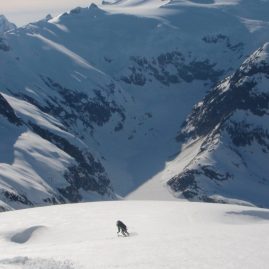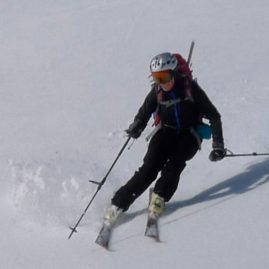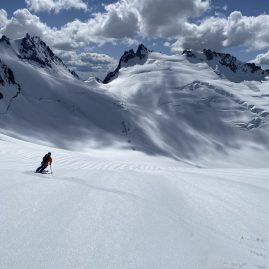ZOOM Sessions :Monday & Friday @6:30/*WOMEN’S 1st Zoom will be on Wed then on Fri, same time
-
- Lecture Sessions Topics Include: Snowpack, Avalanche Phenomenon, Terrain Analysis, Stability Evaluation, Avalanche Hazard Ratings, Human Factors And Risk Assessmen
- t, Decision Making.
Lectures/ZOOM Session:
- 2025/2026 – The Monday & Friday @6:30 prior to the field dates *WOMEN’S 1st Zoom will be on Wed then on Fri, same time
Field Locations: Snoqualmie Pass
- Snoq 2025: December 11/29-30; 12/6-7,13-14, 20-21, 27-28
- Snoq 2026: January 3-4,10-11,17-18, 24-25; February 7-8, 14-15, 28- March 1
- WOMEN’S Dates: December 13-14 ; January 10-11; February 7-8
- Duration: 3 Days
- Level: Beginner
- Client Ratio: 6:1
- Cost:
- $575
- $895 with BC Level 1 w/Intro to Touring
- $650 Custom L1 and Family L1
- Included: Student handbook, Field notebook, evening lectures and field instruction.
- Not Included: Transportation to field location, transceivers, shovels, probes or touring equipment. A detailed equipment list will be sent to all participants.
American Institute for Avalanche Research and Education) Level 1 Avalanche Safety Courses teach how to chose terrain based on the Avalanche Hazard with a clear understanding of the current avalanche hazards, terrain selection and communication. Our Instructors continue with lessons in terrain analysis, travel techniques, basic field based decision making processes, and make sure everyone leaves the course with the companion rescue techniques required to recover your partner.
For families that ride together we have put together Custom Family L1 Courses that are designed to teach 12-17 year olds alongside their parents. We are also parents and know how hard it is to maintain the attention of your middle schooler and made sure to break up to hard topics with games to remind all of us that we are here to have fun, just more of the Type A kind.. Contact Us to schedule your family’s Ski Adventure.
Field Day 1 400′ ↑400’↓, 2 Miles, 6-7 hours
@Snoqualmie Pass Arrive 8:00 am and get ready for the day. Meet at 8:30am, perform a gear check, do introductions, and then start our program. We learn how to use the gear efficiently including learning more about transceivers, probes and shovels. We will practice self-rescue and Companion rescue and take a closer look at the snowpack by digging a test profile to find any slabs.
Field Day 2 1,400′-2,000’↑ 1,400′-2,000’↓, 6-7 Miles, 6-7 hours
We continue our education by focusing on Terrain Management, Track Setting, and more advanced transceiver techniques. We bring all the skills together and move into Tour Planning, Map And Compass Navigation.
Optional 2-Day Intro to Backcountry Touring Extension: “Putting it All Together” add a weekend and develop tour plans and apply appropriate travel techniques. Participants will test their judgment on a full day tour under the instructors’ guidance. Additional practice with skinning, track setting and route finding as well.
Touring Gear
- Adjustable Ski poles with powder (big) baskets*
- Skis or splitboard.Skis should be equipped with alpine touring bindings or telemark bindings. We prefer splitboards w/ skins because you do not need snow shoes.
- Alpine touring, telemark, or snowboard boots
- Snowshoes for snowboarders
- Skins with glop stopper (skin wax)
- Avalanche Beacon This needs to be Triple Antenna.
- Shovel Small collapsible style
- Avalanche Probe 265cm or longer
- Helmet for riding and climbing adjustable to fit over hats
- Lightweight base layer T-shirt or long sleeve polypropylene shirt
- Soft Shell
- 1 Down/synthetic jacket with hood
- 1 Hard shell jacket with hood Waterproof and breathable. roomy enough to fit over multiple layers.
- 1 pair liner gloves Thin wool or polypropylene
- Shell gloves or mitts
- Warm hat Wool or synthetic
- Balaclava or Buff
- Shade hat or baseball cap
Lower Body
- 1 pair heavy wool/synthetic socks Check boot fit with liner and wool socks on
- 1 pair lightweight long underwear Polypropylene or Capilene
- Soft shell pants
- Shell pants Waterproof/breathable with full side zips, Gore-Tex or equivalent is best
Backpack
- Internal frame pack 2000-2500 cubic inch capacity, avoid unnecessary options that add weight
Miscellaneous Equipment
- Goggles and Sunglasses 100% UV protection
- Personal first aid kit Basics: moleskin/blister kit, Band-Aids, first-aid tape, ibuprofen, personal medications, etc.
- Lip balm At least SPF 20,
- Sunscreen At least SPF 40
- Headlamp compact LED
- 2 water bottles 1 liter wide-mouth Nalgene and 1 bottle holster, or
- Multi-tool.
- Bandana
- Hand wipes
- 1 small stainless steel thermos (Optional)
- Lunch & snack food (no more than 2 pounds)
- Beacon Snoqualmie Pass Guidebook and Map
FREQUENTLY ASKED QUESTIONS
WHO WILL MY GUIDE (OR GUIDES) BE?
We are small company who enjoy working together in the mountains as well as highly skilled professionals who hold current Wilderness First Responder certification and are proficient in technical rescue and evacuation skills. Our guides are dedicated to the world of alpinism, many having first ascents and hold professional certifications with the AMGA in the rock, alpine, and ski disciplines. The AMGA is part of the IFMGA, which is the international body of certified mountain guides.
HOW MUCH SHOULD I TIP MY GUIDES?
Tipping is considered standard practice in the guiding industry. Tipping amounts vary, often 10% of the course cost is a good rule-of-thumb, so $20-30 per day per person/per guide is average that works well for the guides without a serious blow to your wallet. If you feel that the program was exceptional or substandard the tip can reflect that.
CAN I RENT EQUIPMENT FROM BCAG?
No, we recommend renting from Cripple Creek where they have a full selection of rentals.
HOW HEAVY WILL MY PACK BE?
You will be required to carry a portion of the group gear and food in addition to your personal gear. This should be taken into consideration when deciding what you will bring. A good rule of thumb is to try to keep your pack weight below 40 pounds, which will allow for extra items to be carried of the group equipment.
HOW HEAVY WILL MY PACK BE?
You will carry 10-15 pounds, which will include everything on the equipment list.
WHEN DO I NEED TO PAY THE BALANCE OF MY TRIP?
Payable when you make your reservation by check, or credit card.
WHAT HAPPENS IF I NEED TO CANCEL MY TRIP?
If you should decide to cancel your trip, BCAG must be notified in writing. Your trip will be cancelled from the date we receive written notice. You will be assessed a cancellation fee according to the following schedule:
90 to 22 days from trip departure – 50% of trip cost
30 days or less – 100% of trip cost
WHAT HAPPENS IF I WANT TO CHANGE THE DATES OF MY TRIP?
Schedule changes are subject to a $50 fee per person up to 2 weeks out and $100 less then 14 days from the start of the trip and may not be possible. If conditions or circumstances preclude running a scheduled program we reserve the right to make the decision as to whether the program will be canceled, rescheduled, or an alternative provided.
WHAT HAPPENS IF BC ADVENTURE GUIDES HAS TO CANCEL MY TRIP?
In the rare circumstance where we need to cancel a program you can reschedule without a fee or receive a refund on your deposit. If circumstances arise that force us to cancel a program that is already in progress we reserve the right to decide whether a refund or credit, at a prorated rate, will be issued. We are not responsible for cancellation fees or costs arising from your changed or cancelled flights, lodging, or other arrangements. We strongly recommend obtaining trip cancellation insurance from your travel agent.
BCAG highly encourages the purchasing of trip cancellation and travel insurance on domestic trips and requires it on international trips. Europeans and Canadians use it because travel insurance provides coverage for trip cancellation and interruption, travel delays, loss of baggage and travel documents, baggage delays, medical expenses and emergency assistance. To avoid any financial hardship that an unexpected cancellation or interruption could cause,
Trip Cancellation/Interruption costs about 5% of your trip cost and it’s worth the peace of mind! If you find that you are not already covered for any of the above circumstances you have options!
BCAG has an account with Global Rescue, the world’s leading membership organization providing integrated medical, security, travel risk and crisis response services to our travelers worldwide. They can provide you with medical and evacuation coverage.
https://partner.globalrescue.com/bcadventureguides/index.html
WHEN SHOULD I PLAN TO LEAVE A RETURN HOME?
We often get this question because most people need to know how much total time they need to take off work. Our Avi and Ski Tours begin by 8 AM at the trailhead and return to the car by 3. Our return to Seattle on the last day typically allows you to get back between 5-7 with the descent and drive back.


